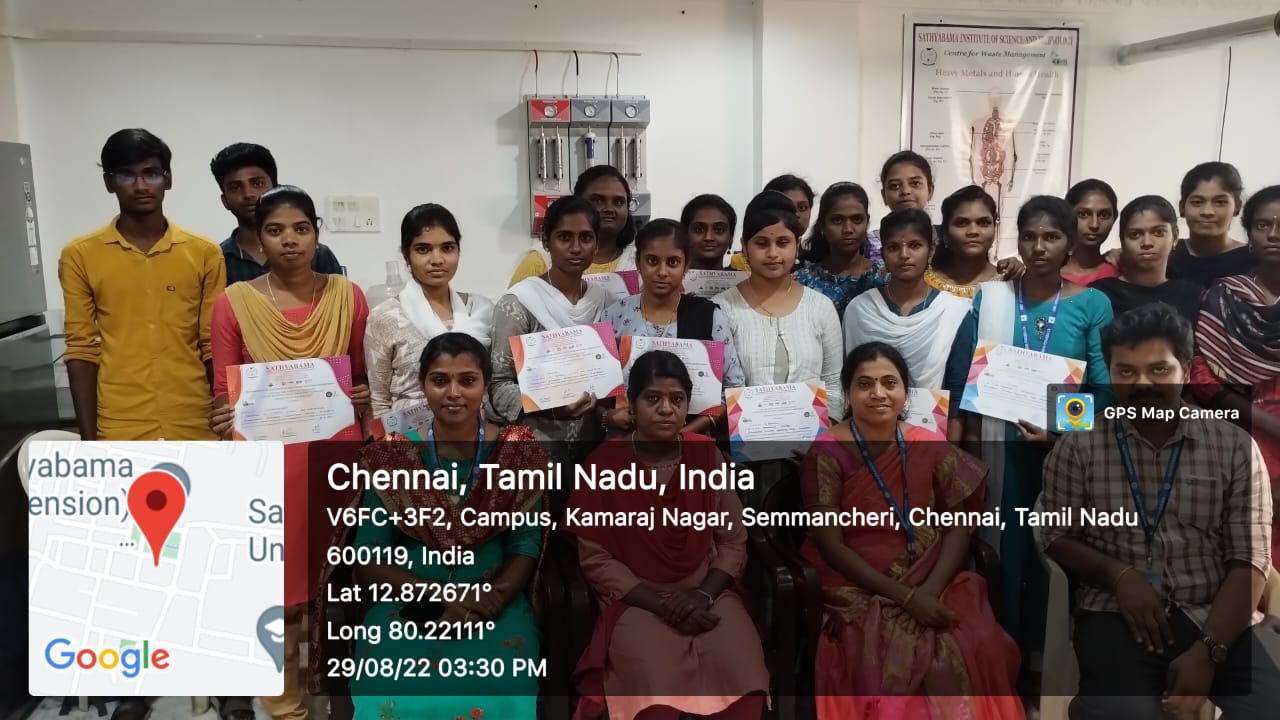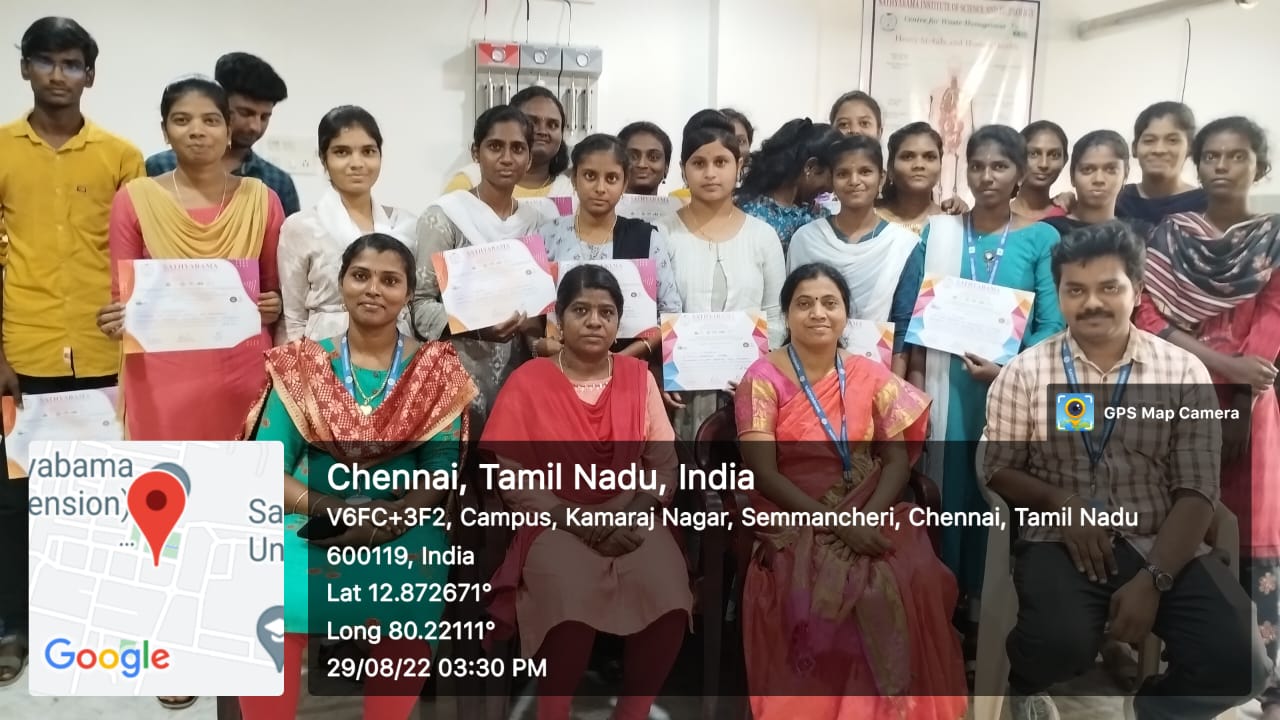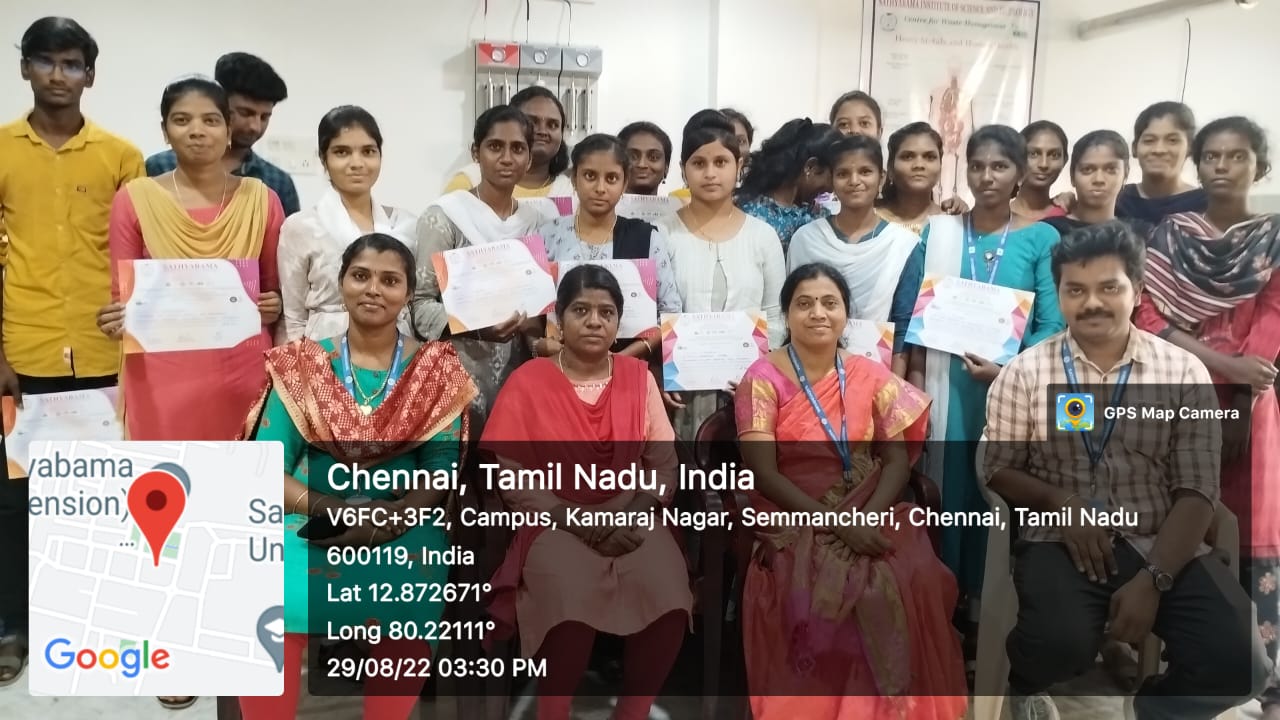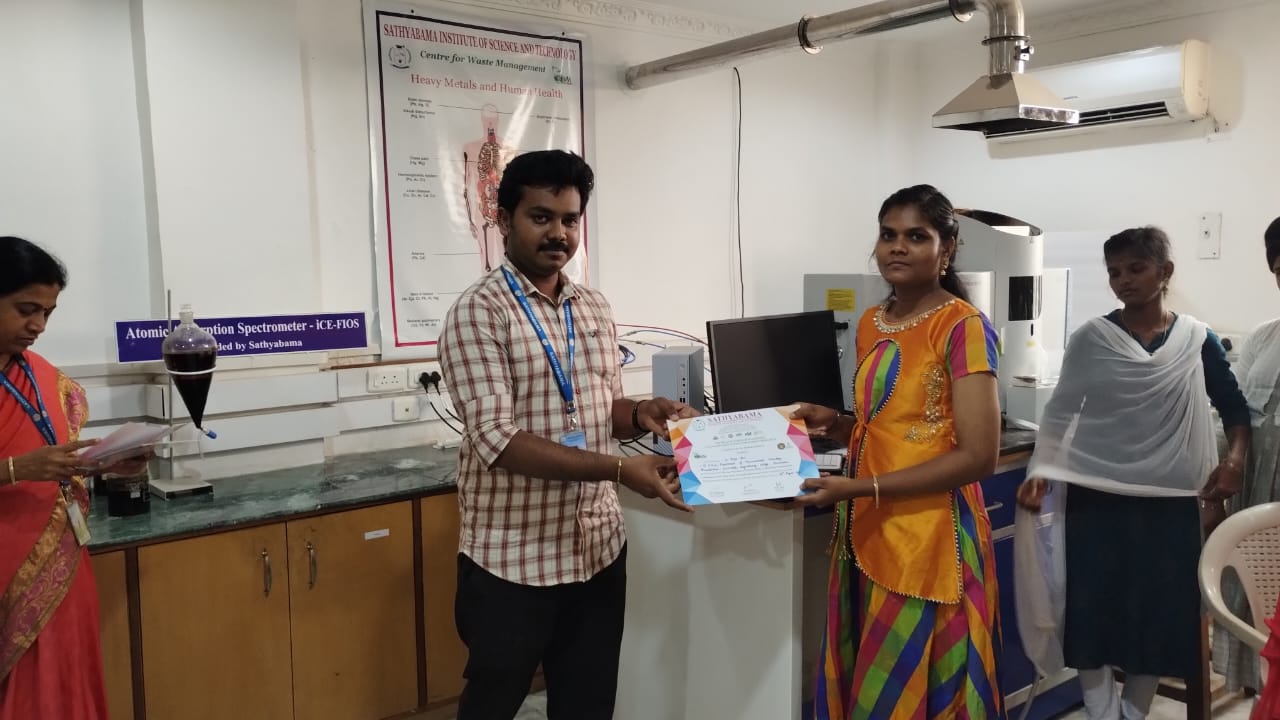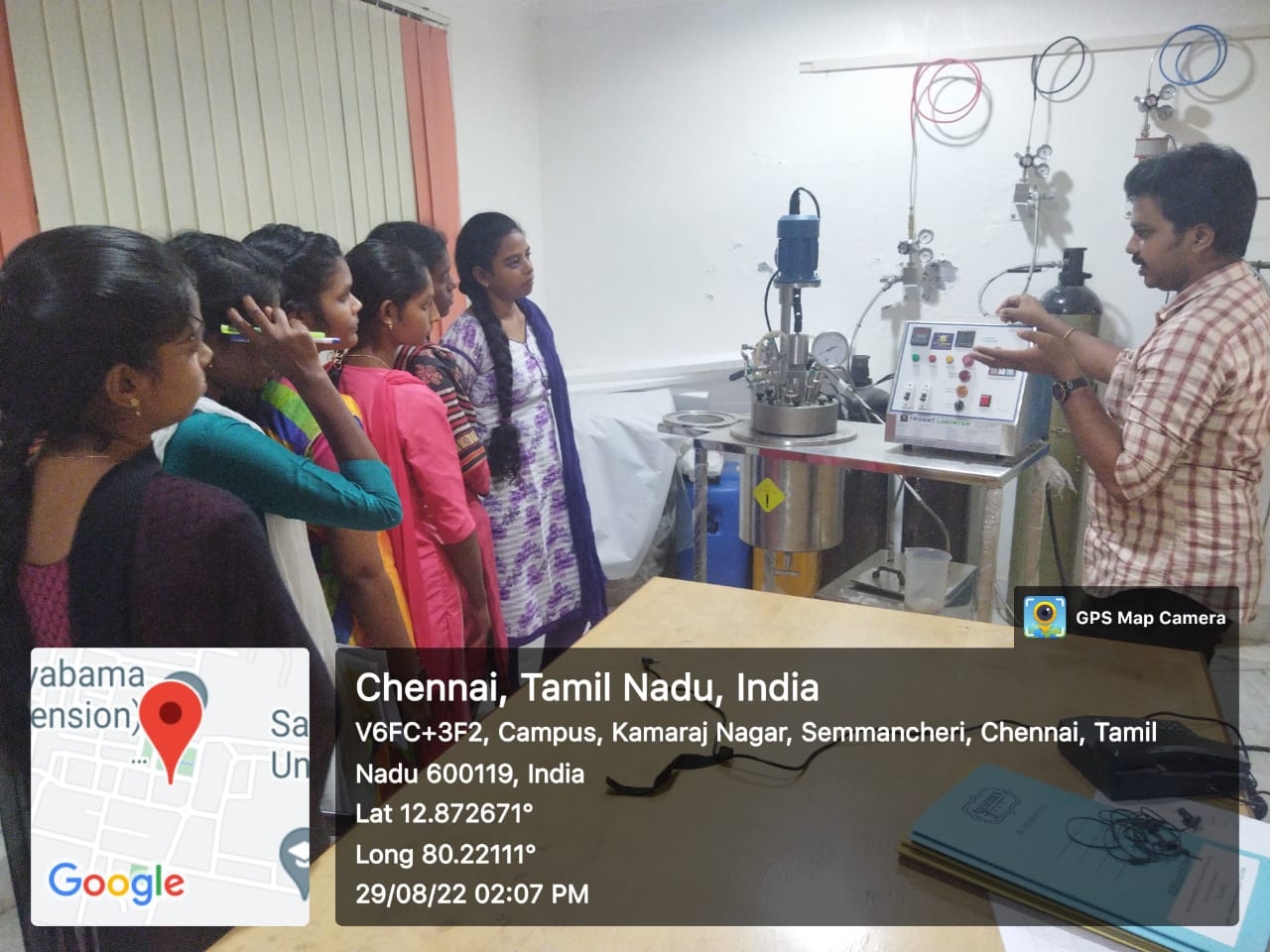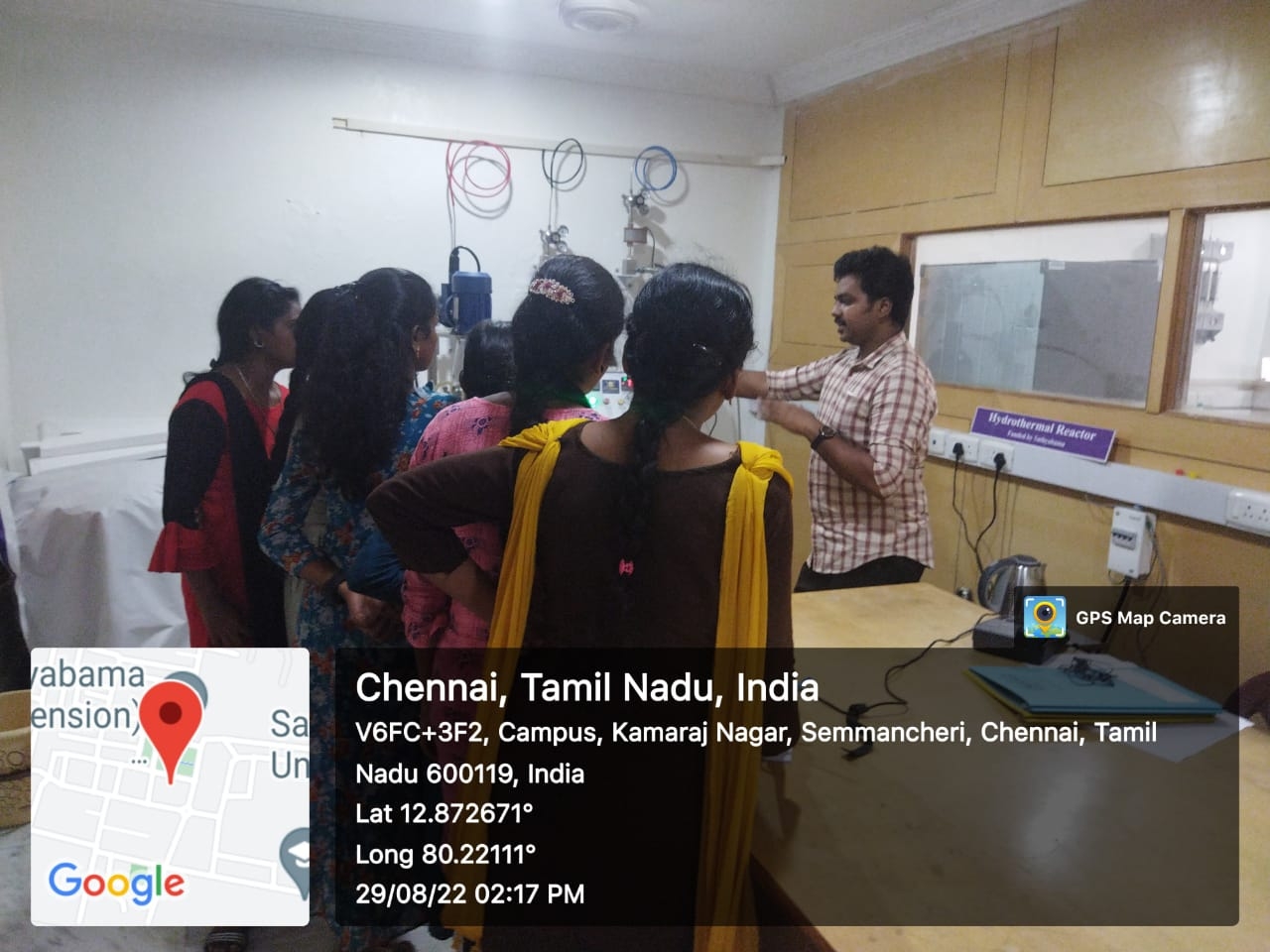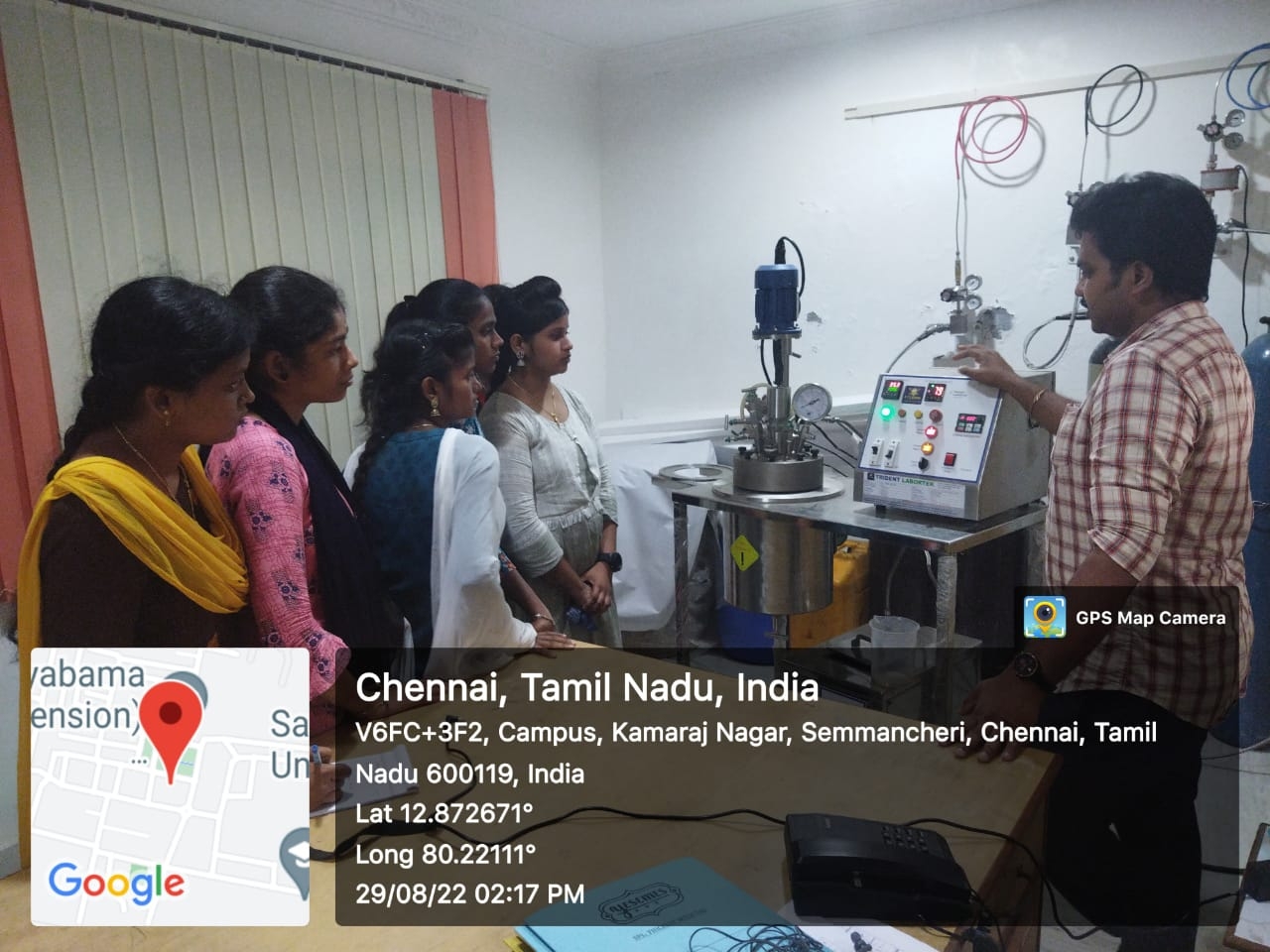Hydrothermal liquefaction
Waste is a valuable resource for recovery of various value added products. Energy engineering is the emerging discipline for achieving negative carbon emission. Environmental engineering aims to provide clean water, air and land for better living as per sustainable development goals (SDGs). This program helps in achieving SDGs 6, 7, 13, 15. This training program provides wide knowledge on Hydrothermal liquefaction (HTL) technology for waste biomass valorisation. HTL can be used to process all type of wastes like agriculture, algae, sewage, municipal, forest residues.
One day Training on Biomass Valorisation using Hydrothermal Reactor (HTL):
One day Training on Biomass Valorisation using Hydrothermal Reactor (HTL) [27th Aug, 2022]. Brochure
Centre for Waste Management, Centre of Excellence for Energy Research, Sathyabama Institute of Science and Technology organized One day workshop on "One day training on biomass valorisation using hydrothermal reactor (HTL)" in 27-8-2022. Around Four students from Paavai Engineering College, Namakkal participated in the Programme. Students were provided with insights on thermochemical conversion processes and its working mechanism. It was an interactive section with the students as they were keen on understanding the effects of operating parameters on biomass conversion into value added products. Further students were given hands on training in operating the facility.
One day Training on Biomass Valorisation using Hydrothermal Reactor (HTL) [29th Aug, 2022]. Brochure
Centre for Waste Management, Centre of Excellence for Energy Research, Sathyabama Institute of Science and Technology organized One day workshop on "One day training on biomass valorisation using hydrothermal reactor (HTL)" in 29-8-2022. Around Twelve students from Dhanalakshmi Srinivasan Engineering College, Perambalur has participated in the Programme. Students were provided with insights on thermochemical conversion processes and its working mechanism. It was an interactive section with the students as they were keen on understanding the effects of operating parameters on biomass conversion into value added products. Further students were given hands on training in operating the facility.
